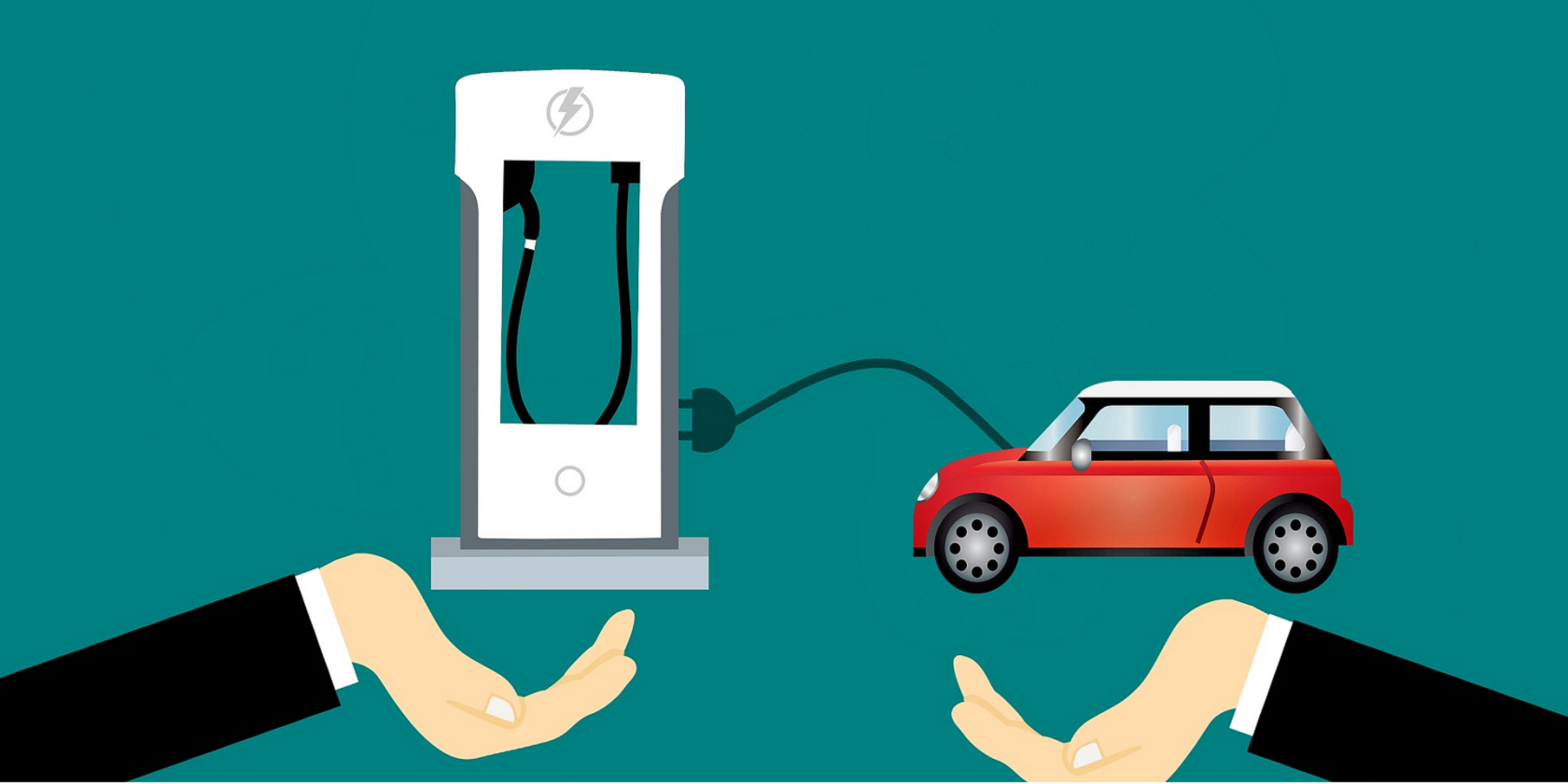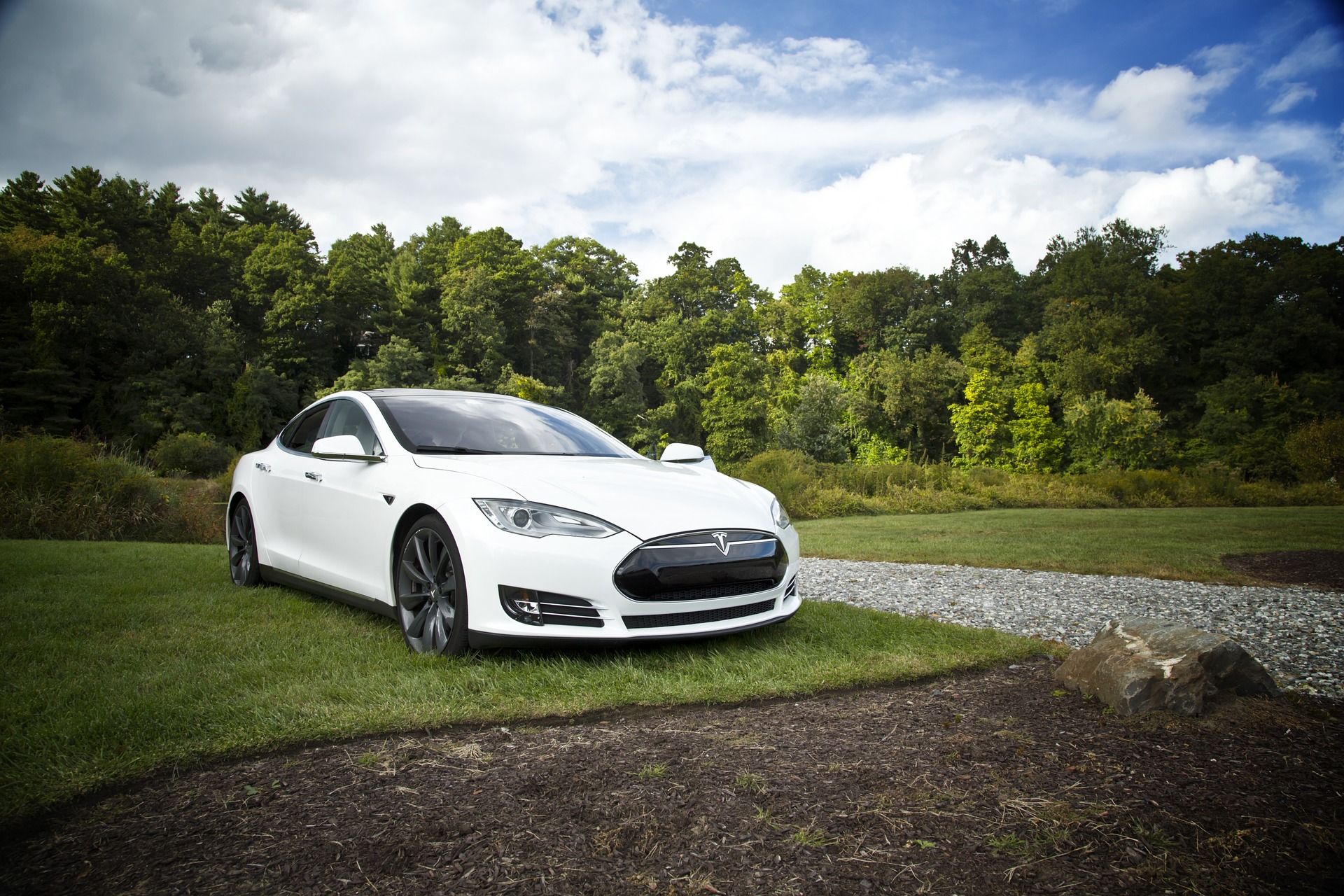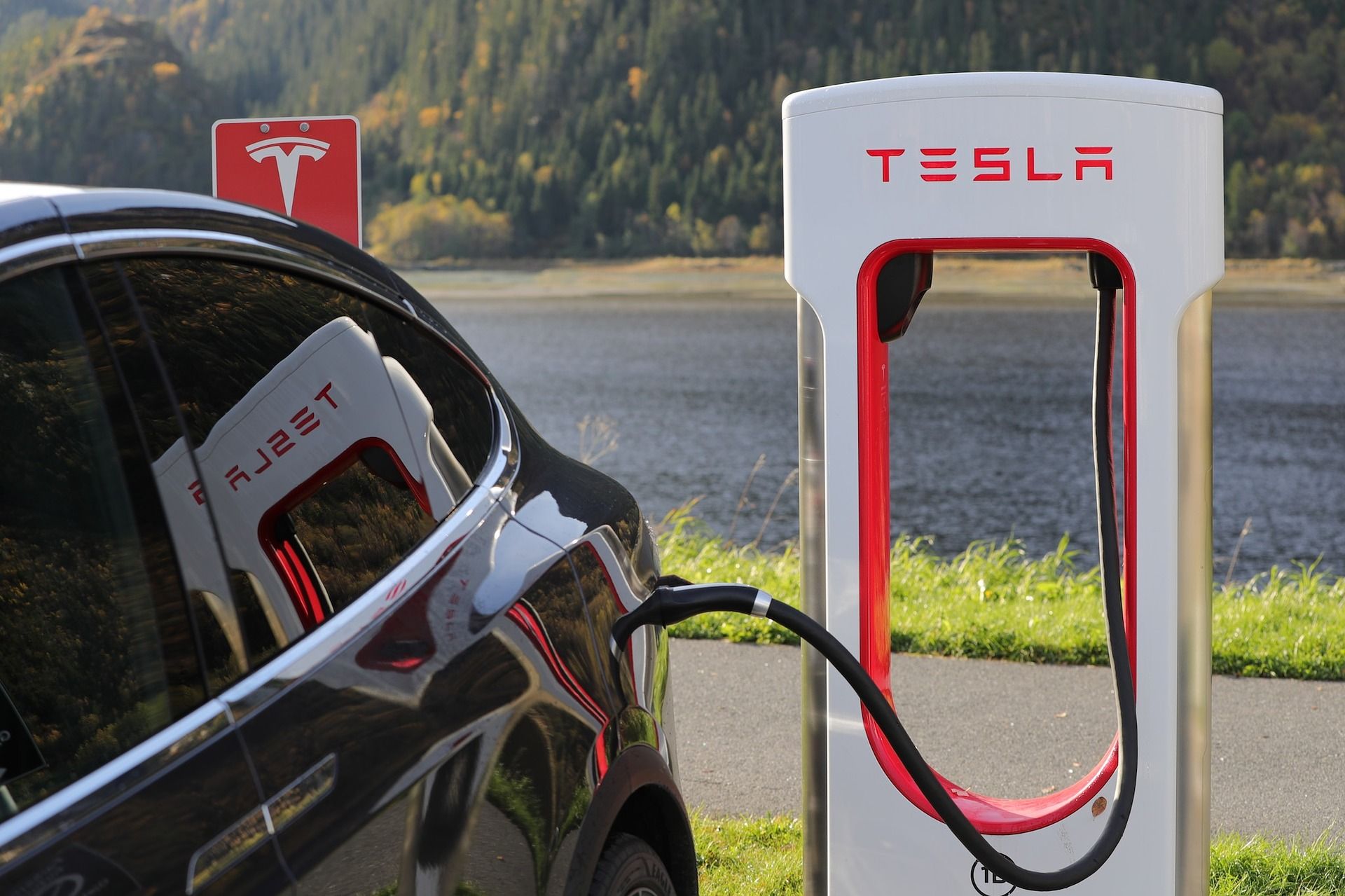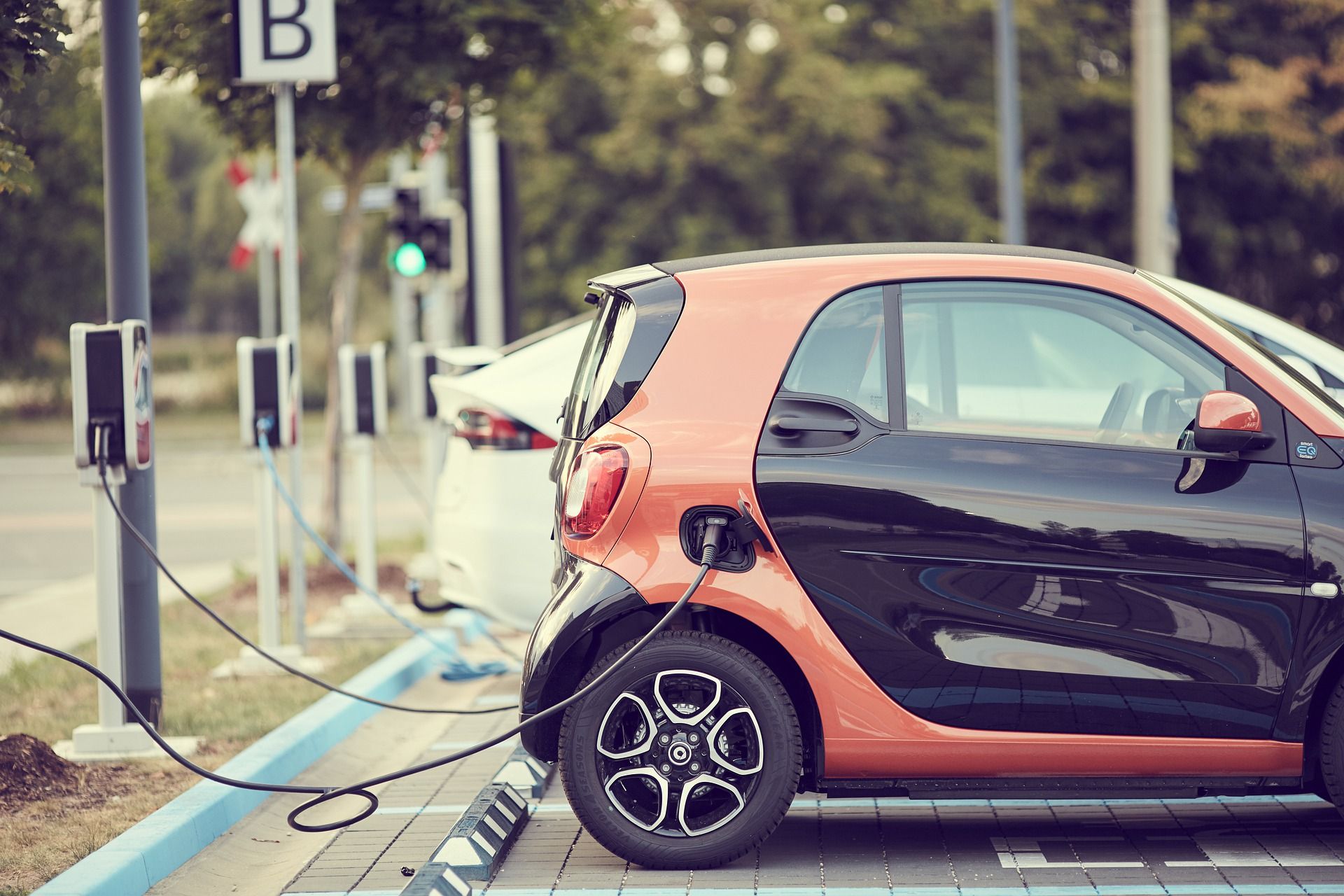Electric vehicles (EVs) are becoming far more popular. As of 2020, there were around 1.8 million registered EVs in the U.S—three times as many as in 2016. Worldwide, there were an estimated 10.2 million EVs in 2020.
So, why are electric cars becoming so popular? In this article, we’ll cover 10 of the most common questions about electric cars that might be on your mind.
1. How Do Electric Cars Work?
Unlike traditional cars that use gasoline to fuel combustion engines, electric cars work exactly how they sound—electronically.
They have battery packs that are charged via the electrical grid. These battery packs are made up of thousands of (usually) rechargeable lithium-ion battery cells. They hold a large amount of electrical energy used to power the electric motor. In addition, the batteries require elaborate cooling systems to regulate the temperature around the battery to support its efficiency, life, and safety.
Electric motors are, surprisingly, much more simple than traditional combustion engines. There are two main kinds of electric motors: Alternating Current (AC) induction motors and permanent-magnet Direct Current (DC) motors. Permanent-magnet DC motors are generally smaller, lighter, and more efficient at maximum current.
Electric cars also generally have a one-speed transmission which means they can accelerate faster than most internal combustion engines.
2. How Far Can Electric Cars Travel?
How far an electric car can travel is called its “range.” The bigger the battery pack, the larger its energy storage capacity, and the larger the range. The range is measured in miles per kilowatt-hours (kWh).
Many newer electric vehicles can travel just under 200 miles on one charge. Some, like the Tesla Model S, can travel over 300 miles.
3. What Happens If the Battery Runs Out?
If the battery runs out, the electric vehicle will have to be towed to the nearest charging station. This can damage the battery, reducing its lifespan. But, once recharged, the car will work as normal once more.
4. How Long Will An Electric Car Battery Last?
An electric vehicle battery should last at least 100,000 to 200,000 miles. This equates to around 10 or 20 years. Tesla reports that the Model S battery will lose around 5% of its capacity in the first 50,000 miles. After this, the battery life will drop much slower.
Most electric vehicle manufacturers offer battery warranties of 5 or 8 years or 100,000 miles. Most reputable manufacturers will replace a battery that has fallen to 60-70% capacity in this time.
There are some things you can do to make sure your EV battery lasts longer:
- Ensure you only buy an electric vehicle with highly rated thermal regulation.
- Try to avoid fast-charging too much as it will reduce battery life.
- Set the charger to charge to 80% of capacity. Overcharging the battery can negatively affect it.
- Don’t let the battery reach 0% capacity.
- Keeping the battery between 50-80% capacity is optimal.
5. Where Can You Recharge Electric Cars?
You can recharge electric vehicles at designated charging stations. Depending on the brand, you can also purchase charging stations for your home, and some brands have charging equipment that connects easily to any power outlet. Charging stations generally come in three or four speeds: 3.7 kW, 7 kW, 22kW, and fast-charging stations over 40 kW.
The number of charging stations around the world is multiplying. There are almost 100,000 charging stations across the mainland USA.
6. How Long Does It Take to Charge a Battery?
This depends on the size of the battery and the type of charger. An electric car with a 60 kWh battery will take around 8 hours to charge from a 7 kW charger.
Most home charging stations will be either 3.7 kW or 7 kW, and these charge relatively slowly (adding 15 or 30 miles per hour of charging, respectively). There are also fast-charging outlets available in certain locations which will charge a battery in under an hour but may reduce battery life if used too frequently.
Most EV owners will plug their car in whenever they park it, allowing the charging station to “top-up” the battery each time.
7. Are EV Batteries Toxic, and Can They Be Recycled?
Lithium-ion batteries contain many toxic chemicals that can be damaging to the surrounding environment. Though they can be recycled, the current rate of Li-ion battery recycling worldwide is less than 5%.
Lithium-ion batteries can be recycled by two methods: The cheaper, less effective, and less environmentally friendly method called pyrometallurgy, and the more expensive but environmentally friendly method called hydrometallurgy.
Typically, most lithium-ion batteries end up in landfills—an issue that regulators are attempting to rectify before electric cars become even more popular. Finding an alternative power source may be the best answer to this problem.
8. Are Electric Cars a Fire Hazard?
Not necessarily. Electric vehicles contain many flammable parts, just like internal combustion engine vehicles. In the US, the National Highway Traffic Safety Administration (NHTSA) conducted a study [PDF] and found that lithium-ion electric cars probably have comparable or even lower chances of fire than internal combustion engine vehicles do.
9. Are Electric Cars Greener Than Traditional Cars?
Electric vehicles do not produce any polluting exhaust fumes and are also more efficient than cars that run on gasoline. EVs also typically have lower emissions despite relying to some extent on coal plants for power. For instance, the electric Chevrolet Bolt produces 189 grams of carbon dioxide per mile, while a gasoline-run Toyota Camry produces 385 grams.
But, their emissions depend on the quality of the power grid that their batteries are charged from. For example, if a power grid generates power using just coal plants, an electric car can produce more emissions than a petrol car.
Electric vehicles also require rare earth elements, including lithium and cobalt, which are hazardous for the environment and highly polluting to mine and refine. Cobalt is also linked heavily to human rights concerns, and lithium requires massive amounts of water to produce.
So, while overall EVs are generally greener than traditional cars, several problems still need to be solved to make them more environmentally friendly.
10. How Much Do Electric Cars Cost to Run and Service?
Electric vehicles have fewer moving parts than traditional cars, so they are generally cheaper to service. This is because there are fewer parts to be checked and replaced. But, it's important to factor in other costs such as the installation of a charging system, replacement batteries if something goes wrong, and electricity costs compared to fuel. Service costs will vary depending on the manufacturer, too.
Electricity cost per mile depends on the cost of the electricity itself and the efficiency of the electric vehicle. If your battery requires 40 kWh to recharge, and it costs 15 cents per kWh in your area, that’s a $6.00 fill-up. If, like the Tesla Model 3, your EV is rated at 24 kWh/50 miles, a 50-mile trip will cost around $3.60.
Electric Cars Are the Future of Transport
As electric cars become more popular, it’s only normal to have questions about how they work. Hopefully, we’ve cleared up any confusion you might’ve had about EVs!




